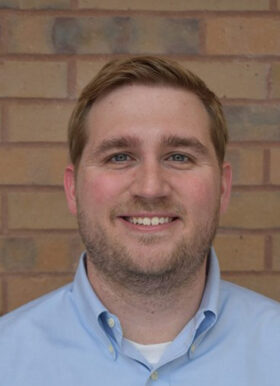Basic & Translational Research

Megan Tierney Baldridge, MD, PhD
Associate Professor, Departments of Medicine and Molecular Microbiology
- Phone: 314-273-1212
- Email: mbaldridge@wustl.edu
Dr. Baldridge studies the complicated interplay among three important factors: commensal microbes, the host immune system, and viral and bacterial pathogens.
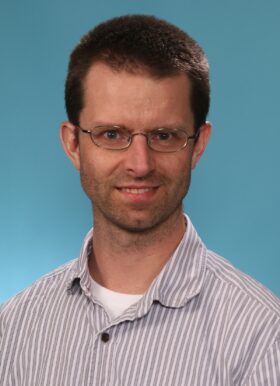
Jacco Boon, PhD
Associate Professor of Medicine, Molecular Microbiology and Pathology and Immunology
- Phone: 314-286-0857
- Fax: 314-286-2784
- Email: jboon@wustl.edu
Dr. Boon He specializes in basic research on RNA viruses, with a special focus on emerging virus such as influenza virus, Bourbon virus and SARS-CoV-2.
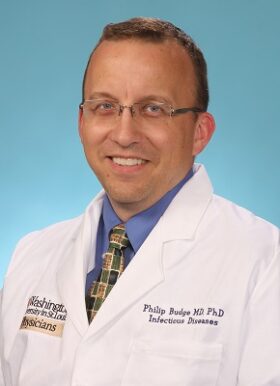
Philip J. Budge, MD, PhD
Associate Professor of Medicine
- Phone: 314-747-5198
- Fax: 314-454-5392
- Email: pbudge@wustl.edu
Dr. Budge specializes in translational, public health-related research, with a special focus on filarial infections—insect-borne threadlike parasitic worms that cause lymphatic filariasis (elephantiasis), onchocerciasis (river blindness), and loiasis (African eye worm).

Brett Case, PhD
Instructor in Medicine
- Email: casejb@wustl.edu
Dr. Case's primary research interests include vaccine design, generation of broadly cross-reactive immune responses, mucosal immunity, viral immunology, and emerging pathogens.
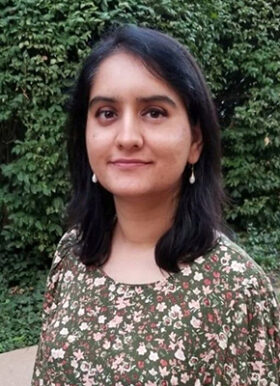
Pallavi Chandra, PhD
Instructor in Medicine
- Phone: 314-747-5228
- Email: chandra.pallavi@wustl.edu
Dr. Chandra specializes in Mycobacterium tuberculosis pathogenesis, with a special focus on immunometabolism. In recent work, she characterized a novel relationship between macrophage fatty acid metabolism and antimycobacterial immunity.
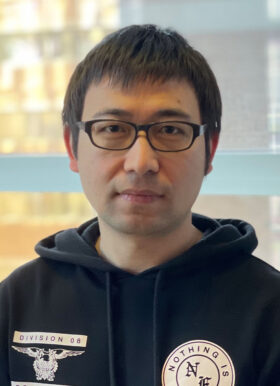
Zhenlu Chong, PhD
Instructor in Medicine
- Phone: 314-362-2847
- Email: zchong@wustl.edu
Dr. Chong specializes in innate immunology and infectious diseases, with a special focus on how innate immunity responds to flavivirus infection. He is also very interested in identifying host factors of flaviviruses including West Nile virus, Dengue virus, Zika virus, etc. by using CRISPR screening.
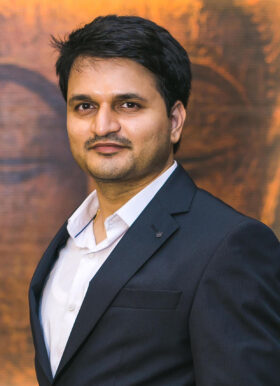
Pritesh Desai, PhD
Instructor in Medicine
- Phone: 314-362-2847
- Email: desai@wustl.edu
Dr. Desai concentration is immunology and microbiology, and virology.
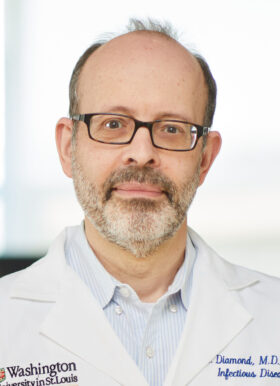
Michael S. Diamond, MD, PhD
The Herbert S. Gasser Professor, Departments of Medicine, Molecular Microbiology, Pathology & Immunology
- Phone: 314-362-2842
- Fax: 314-362-9230
- Email: diamond@wusm.wustl.edu
Michael Diamond, MD, PhD is the leader of a basic and translational research laboratory studying the interface between viral pathogenesis and host immunity. His laboratory focuses on emerging RNA viruses including flaviviruses, alphaviruses, and coronaviruses.
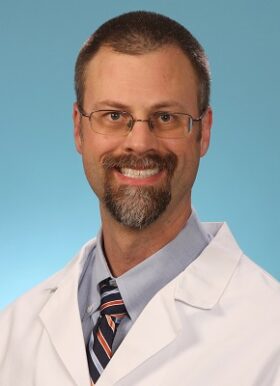
Erik R. Dubberke, MD, MSPH
Professor of Medicine
- Phone: 314-454-8354
- Fax: 314-454-5392
- Email: edubberk@wustl.edu
Dr. Dubberke specializes in clinical and translational infectious diseases, with a focus on transplant infectious diseases, hospital epidemiology, and Clostridioides difficile infection (CDI).
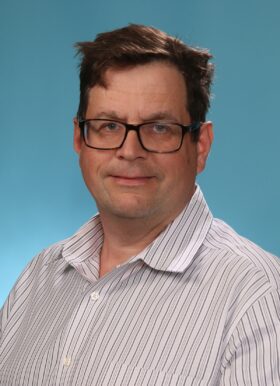
Peter U. Fischer, PhD
Professor of Medicine
- Phone: 314-454-7876
- Fax: 314-454-5293
- Email: pufische@wustl.edu
Dr. Fischer specializes in basic and translational sciences to support the control and elimination of neglected tropical diseases, with a special focus on helminths.
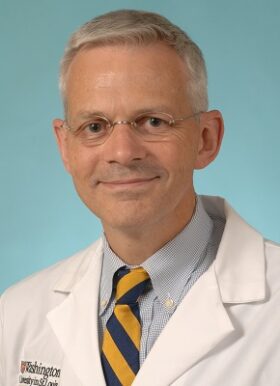
James M. Fleckenstein, MD
Professor, Departments of Medicine, Molecular Microbiology
- Phone: 314-362-9218
- Fax: 314-362-9129
- Email: jflecken@wustl.edu
Dr. Fleckenstein’s lab focuses on the identification and molecular characterization of novel ETEC virulence factors that could serve as targets for vaccine development. Studies in the lab use a variety of molecular techniques and in vitro and in vivo models to elucidate the role of these novel virulence factors in several key steps essential in the pathogenesis of these organisms: bacterial adhesion, intestinal colonization, and finally toxin delivery.
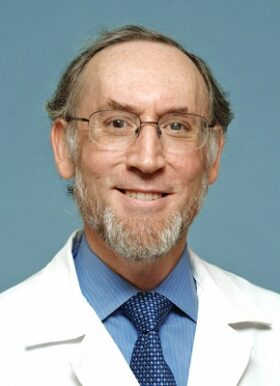
Daniel E. Goldberg, MD, PhD
David M. and Paula L. Kipnis Distinguished Professor, Departments of Medicine and Molecular Microbiology
- Phone: 314-362-1514
- Fax: 314-367-3214
- Email: goldberg@borcim.wustl.edu
Dr. Goldberg does basic research on the biology of malaria and identification of drug targets. Parasites have evolved many clever ways to infect their hosts and develop within them. Researching these processes at a molecular level should lead to treatment or prevention of parasitic infections that afflict most of humanity. His laboratory currently has 4 graduate students, 2 postdocs, one pediatric ID fellow, one technician and a research associate professor. Dr. Goldberg directs the Infectious Diseases/Basic Microbial Mechanisms T32 training grant.
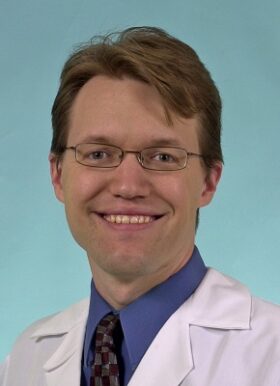
Jeffrey P. Henderson, MD, PhD
Professor of Medicine and Molecular Microbiology
- Phone: 314-747-0240
- Fax: 314-362-1232
- Email: hendersonj@wustl.edu
Dr. Henderson specializes in infection pathogenesis, with a special focus on urinary tract infections and identifying how special bacterial adaptations increase pathogenic potential in patients.
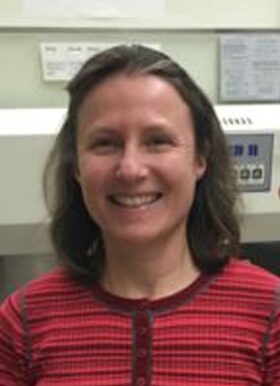
Eva Istvan, PhD
Associate Professor of Medicine
- Phone: 314-362-4780
- Email: istvan@wustl.edu
Dr. Istvan specializes in the biochemistry of Plasmodium falciparum, the most deadly malaria parasites of humans.
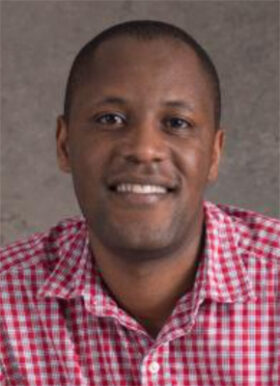
Javan Kisaka, PhD
Instructor in Medicine
- Phone: 314-362-8838
- Email: javan@wustl.edu
Dr. Kisaka specializes in cell, structural and molecular microbiology and currently works in the Kyei Lab.
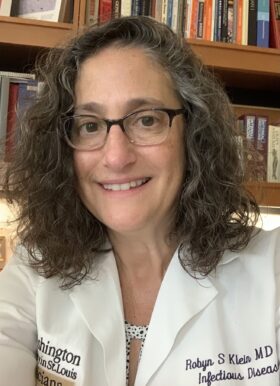
Robyn S. Klein, MD, PhD
The Robert E. and Louise F. Dunn Distinguished Professor of Medical Sciences, Departments of Medicine and Pathology and Immunology
- Phone: 314-286-2140
- Fax: 314-362-9230
- Email: rklein@wustl.edu
Dr. Klein is an internationally renowned neuroimmunologist who oversees a basic and translational science research program focused on the pathogenesis of neuroinfectious diseases of the central nervous system (CNS). Studies in the Klein laboratory focus on cellular and molecular mechanisms that orchestrate inflammation and define its impact on CNS function during both viral and autoimmune encephalitides.
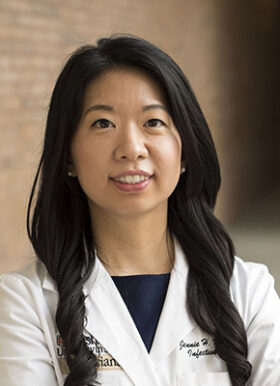
Jennie H. Kwon, DO, MSCI
Associate Professor of Medicine, Section Director, Healthcare Epidemiology & Antimicrobial Stewardship
- Phone: 314-454-8354
- Fax: 314-454-5392
- Email: j.kwon@wustl.edu
Dr. Kwon specializes in clinical and translational research with a focus on antimicrobial resistance and infection prevention.
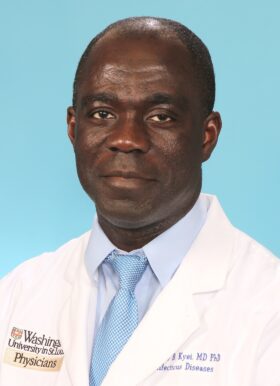
George B. Kyei, MBChB, PhD
Associate Professor, Departments of Medicine and Molecular Microbiology
- Phone: 314-454-8354
- Fax: 314-454-5392
- Email: gkyei@wustl.edu
Dr. Kyei specializes in HIV basic and translational research, with a special focus on viral latency and reactivation specifically: (i) characterization of factors that control HIV replication in macrophages, dendritic and resting T cells and (ii) identification of cellular factors and small molecules required for HIV reactivation in latently infected cell and (iii) perspectives of HIV patients on HIV cure.

Daisy W. Leung, PhD
Associate Professor, Departments of Medicine, Pathology and Immunology, and Biochemistry and Molecular Biophysics
- Phone: 314-286-0645
- Email: dwleung@wustl.edu
The Leung Lab is focused on developing a mechanistic understanding of host-pathogen interactions that contribute to viral pathogenesis through immune evasion.
